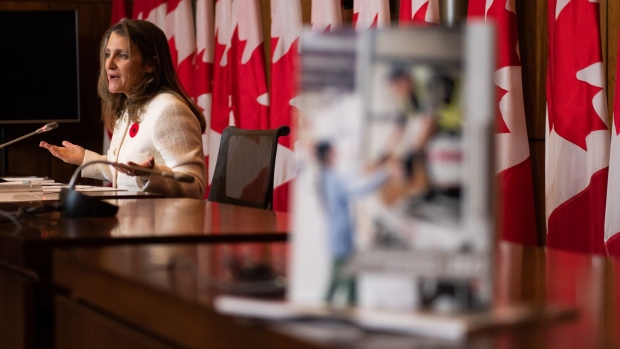Nov 3, 2022
Trudeau Vows 2% Tax on Share Buybacks, Boosts Clean-Tech Credits
, Bloomberg News

(Bloomberg) -- Prime Minister Justin Trudeau’s government took steps to level the corporate playing field with the US on Thursday, announcing a 2% tax on share buybacks and C$6.7 billion ($4.9 billion) in tax credits for clean technologies over five years.
The buyback tax will be imposed on the net value of all types of share repurchases by public corporations in Canada. It is double the size of the 1% excise tax on repurchases that was signed into law by US President Joe Biden as part of the Inflation Reduction Act unveiled in August.
The clean technology credit, meanwhile, will provide a refundable tax credit equal to 30% of the capital costs of investments in net-zero technologies, battery storage solutions, and clean hydrogen.
“Following the adoption of the Inflation Reduction Act in the United States, the need for a competitive clean technology tax credit in Canada is more important than ever,” the government said in its Fall Economic Statement.
The US Climate Bill Is a Bigger Deal Than Most People Realize
Canada views the US measures as an ambitious and aggressive industrial policy requiring a quick response, a senior government official said. The US law is intended to attract foreign direct investment and to make it a global leader in clean technologies, the official said.
The tax credit is just an initial part of Canada’s response, the official said. Additional actions will be announced in next year’s budget, according to a government statement.
The 2% share buyback tax would come into force on January 1, 2024. It’s expected to increase federal revenues by C$2.1 billion over five years.
“I think it’s dumb but I don’t think it’s going to change the marginal allocation of capital,” said Cole Smead, president and portfolio manager at Phoenix-based Smead Capital Management Inc. The firm is a shareholder in Cenovus Energy Inc., an oilsands producer that spent C$659 million to repurchase 29 million of its own shares in the third quarter.
“It’s still cheaper than a dividend,” Smead said of the tax on buybacks, which he described as targeting undistributed capital. “It’s nothing more than a wealth tax, or an excess savings tax,” he said.
Canada’s six largest banks have spent about C$9.76 billion buying back shares since the Office of the Superintendent of Financial Institutions lifted its restriction on the practice a year ago.
As in the US, the new tax is aimed at penalizing corporations that aim to reward shareholders by repurchasing shares, encouraging them instead to reinvest funds in workers and businesses in Canada.
--With assistance from Kevin Orland.
(Adds portfolio manager comment on buyback tax in paragraph 8 and 9)
©2022 Bloomberg L.P.






